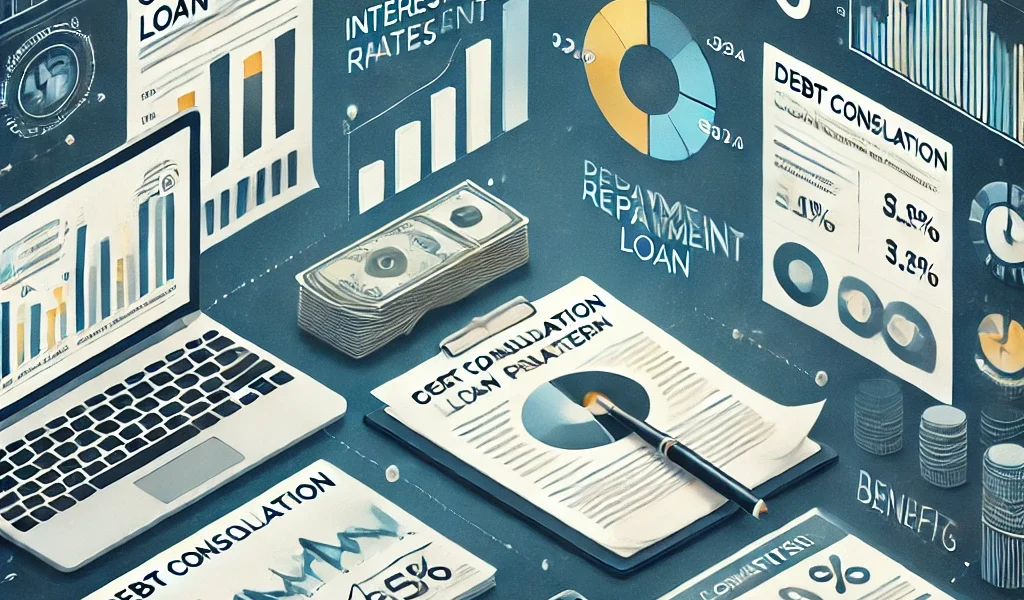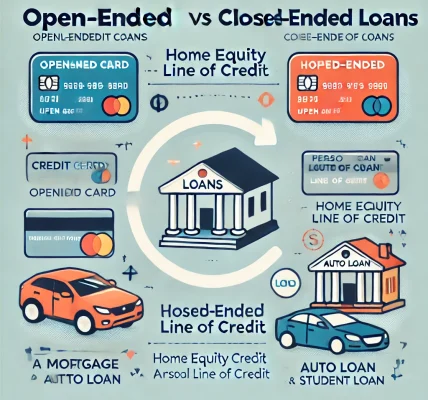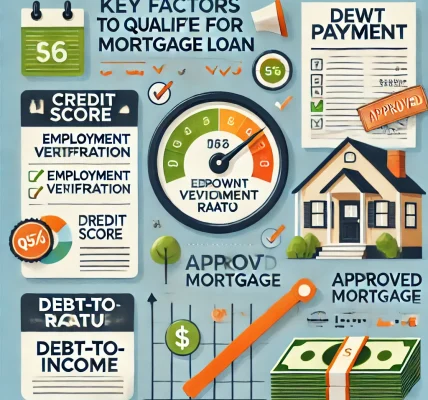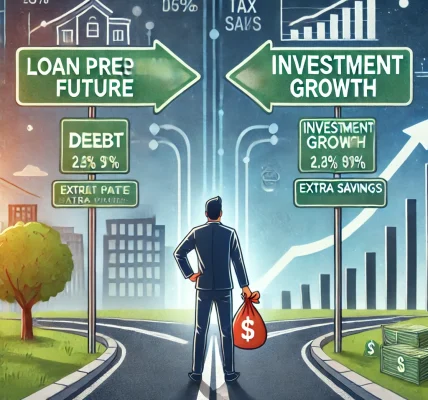Introduction
Debt consolidation loans can be a game-changer for individuals struggling with multiple debts. These loans combine multiple debts into a single loan, often with a lower interest rate, making repayments more manageable. Whether you have credit card debt, personal loans, or medical bills, debt consolidation can help simplify your finances and potentially save you money.
This article reviews the best debt consolidation loan providers, their features, eligibility criteria, pros & cons, and how to choose the right lender.
Disclaimer: Loan policies vary by lender and region. Always check official sources before applying.
What Is a Debt Consolidation Loan?
A debt consolidation loan is a personal loan used to pay off multiple outstanding debts, consolidating them into a single loan with one monthly payment. These loans usually offer fixed interest rates, structured repayment terms, and lower monthly payments compared to high-interest debts like credit cards.
Benefits of Debt Consolidation Loans:
✅ Lower interest rates compared to credit cards and payday loans
✅ Single payment instead of managing multiple due dates
✅ Improved credit score with consistent payments
✅ Faster debt payoff with structured repayment plans
✅ Reduced financial stress by simplifying obligations
Top Debt Consolidation Loan Providers (2024)
1. SoFi
- APR Range: 8.99% – 25.81%
- Loan Amount: $5,000 – $100,000
- Repayment Terms: 2 – 7 years
- Pros: No fees, unemployment protection, high loan limits
- Cons: Requires strong credit score (680+), no secured loan options
2. Marcus by Goldman Sachs
- APR Range: 6.99% – 24.99%
- Loan Amount: $3,500 – $40,000
- Repayment Terms: 3 – 6 years
- Pros: No fees, fixed rates, flexible payment options
- Cons: No co-signers allowed, strict approval criteria
3. LightStream
- APR Range: 7.49% – 25.49%
- Loan Amount: $5,000 – $100,000
- Repayment Terms: 2 – 7 years
- Pros: Low interest rates for good credit, same-day funding
- Cons: No prequalification, high credit score required
4. LendingClub
- APR Range: 9.57% – 36%
- Loan Amount: $1,000 – $40,000
- Repayment Terms: 3 – 5 years
- Pros: Accepts fair credit, allows joint applications
- Cons: High fees, longer approval process
5. Upgrade
- APR Range: 8.49% – 35.99%
- Loan Amount: $1,000 – $50,000
- Repayment Terms: 2 – 7 years
- Pros: Accepts bad credit, fast funding
- Cons: Higher APR for lower credit scores
6. Discover Personal Loans
- APR Range: 7.99% – 24.99%
- Loan Amount: $2,500 – $35,000
- Repayment Terms: 3 – 7 years
- Pros: No origination fees, flexible repayment options
- Cons: Hard credit pull required for pre-approval
How to Choose the Best Debt Consolidation Loan Provider
1. Compare Interest Rates
Look for a lender offering a lower Annual Percentage Rate (APR) than your existing debts. A lower APR can save thousands over the loan term.
2. Check Eligibility Criteria
Most lenders require a credit score of 600+, while premium loans demand 700+. Some lenders accept co-signers or secured loans for those with lower credit scores.
3. Look for No Hidden Fees
Some lenders charge origination fees (1-5%), late payment fees, or prepayment penalties. Choose a lender with transparent fees.
4. Evaluate Repayment Terms
Longer repayment terms mean lower monthly payments but higher interest over time. Shorter terms save money but require higher monthly payments.
5. Consider Customer Support & Flexibility
Some lenders provide benefits like payment deferments, flexible due dates, and hardship assistance.
Eligibility Criteria for Debt Consolidation Loans
While criteria vary by lender, the most common requirements include: ✅ Credit Score: Typically 600+, but better rates for 700+
✅ Income Stability: Proof of stable income to ensure repayment ability
✅ Debt-to-Income (DTI) Ratio: Preferably below 40%
✅ Loan Amount & Purpose: Some lenders restrict usage to specific debts
✅ Collateral (For Secured Loans): Required for lower rates or larger loans
Application Process for Debt Consolidation Loans
Step 1: Pre-Qualify
- Use lender websites to check estimated rates without affecting your credit score.
Step 2: Compare Loan Offers
- Look at APRs, fees, repayment terms, and eligibility.
Step 3: Gather Documentation
- ID proof, income proof, credit report, debt details.
Step 4: Submit Application
- Apply online or in person. Hard credit checks may impact your score.
Step 5: Receive Funds & Pay Off Debt
- Funds are disbursed to you or directly to creditors.
Step 6: Start Making Payments
- Ensure timely payments to avoid penalties & credit damage.
Pros & Cons of Debt Consolidation Loans
✔ Pros:
✔ Lower interest rates compared to credit cards
✔ Simplifies debt repayment
✔ Fixed monthly payments help budgeting
✔ Potentially improves credit score
❌ Cons:
❌ May require excellent credit for best rates
❌ Some loans come with high fees
❌ Defaulting can worsen financial situation
❌ Extended repayment terms may lead to higher total costs
Alternative Debt Relief Options
If debt consolidation isn’t right for you, consider:
- Balance Transfer Credit Cards: 0% interest promo periods for credit card debt
- Debt Management Plans (DMPs): Credit counseling services to restructure payments
- Debt Settlement: Negotiating with creditors to pay less than owed
- Bankruptcy: Last resort for severe financial hardship
Final Thoughts
Debt consolidation loans offer a smart way to simplify and reduce debt, but choosing the right lender is crucial. Compare interest rates, fees, eligibility, and repayment terms before applying. Always consider alternative options if consolidation isn’t a good fit.
For the latest lender updates, visit official financial websites or consult a licensed financial advisor.
Disclaimer: This article is for informational purposes only. Loan terms vary by lender and region. Always verify details with financial institutions before making decisions.




